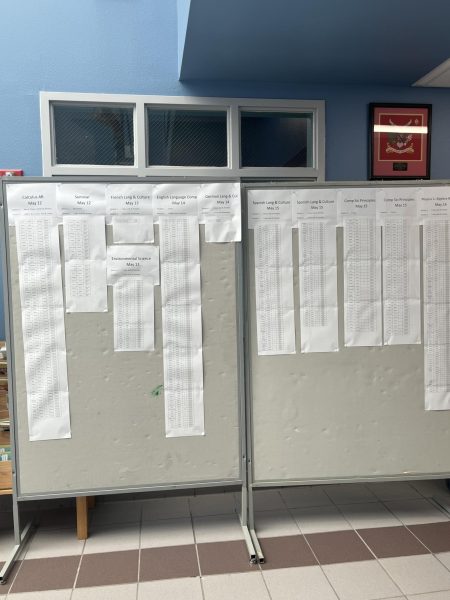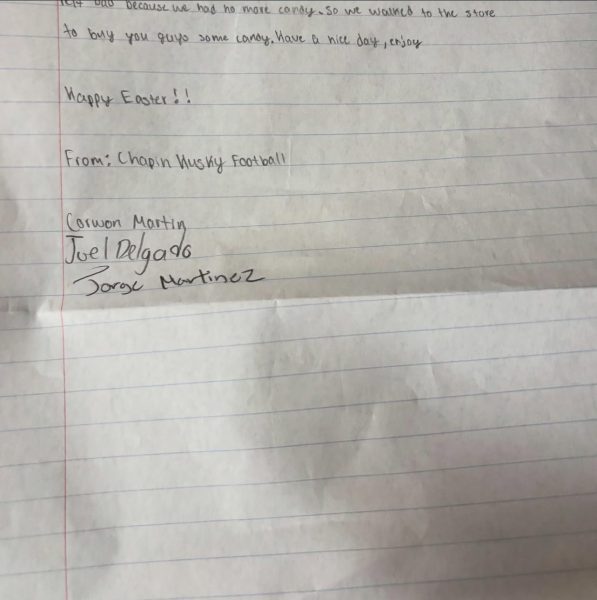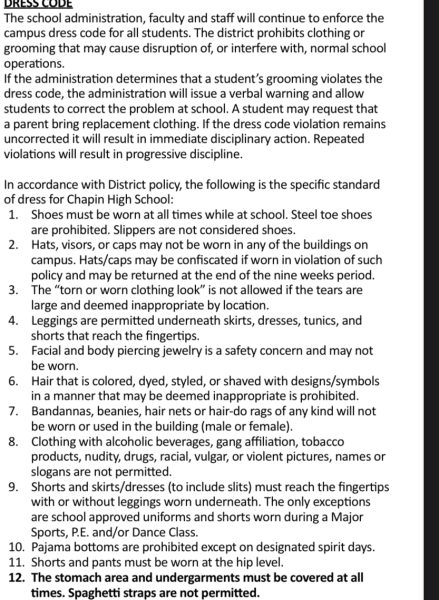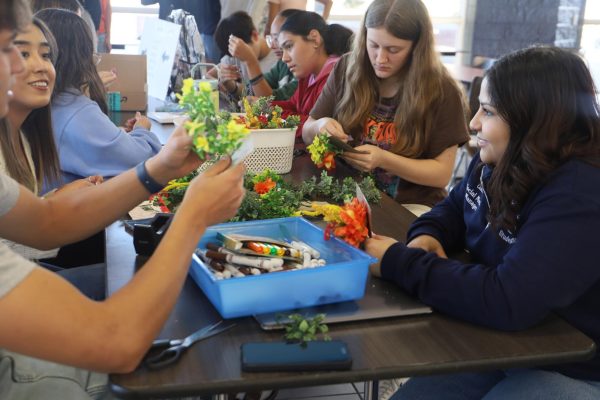Every day is “Month of the Military Child”
Military children discuss their lives
“It was all explained whenever you said you were military, you just have that face, you just look so mean.”
Freshman Justyce Smith’s friend from seventh grade had made a “mental note to stay away” from her when first seeing Justyce because she looked as if she would punch her. Her friend also explained that her mean appearance made sense after discovering she had been military.
April is the “Month of the Military Child,” however for some kids it is always “Month of the Military Child.” Justyce believes that the idea of soldiers having perfect posture and a serious face is incorrect. Instead, she describes her dad as a “smiley, excitable person.”
“I’ve noticed that that kind of mentality goes onto the children too,” Justyce said. “They just think that we’re mean and serious, that we take everything literal and that we don’t know how to loosen up and have fun, because once again, whenever you think of military you think of uptight, stoic and that’s just not it.”
Freshman Kenna Chastain finds it difficult to make friends and dislikes moving.
“It’s the only thing I’ve ever known my entire life,” Kenna said, “but I honestly hate change.”
Freshman Alanis Martinez Galloza is in her second year of being part of a military family. She dislikes when her stepdad must leave for lengthy periods of time and the amount of time he works, but looks forward to moving.
“So far, I think it’s okay,” Alanis said. “I’ve heard a lot of good things about it, about the different places people go. I am excited, I like it, I kinda like it.”
Kenna enjoys being able to learn things other people cannot, such as living in Italy and experiencing its culture. She has also learned geographic knowledge and “various military commands.”
“I’ve learned to be very adaptive because you have to adapt, or you don’t make it too far,” Kenna said. “I’ve learned other languages, not that I can recall any of them, but you had to know them if you lived in another country.”
Since converting to military life, Alanis has become more social and takes part in more activities such as JROTC.
“When I was in Puerto Rico, it was hard for me to make friends,” Alanis said. “I would always have the same ones. This moving, I’m forced to make friends because I need to meet people.”
Kenna has resided in multiple states and in Italy. She will move to San Antonio next.
“I was born in Houston, moved to North Carolina, then Georgia, Italy, Maryland, and here,” Kenna said.
Justyce has moved around multiple times, however not all were military related since her dad left the military for some time.
“I was born in Korea, then we came over, lived in North Carolina, and then I’ve been pretty much everywhere in Texas and then been here for like two years,” Justyce said.
Before becoming a military family, Alanis was unaware of how often her stepdad would have to leave or travel.
“They wouldn’t tell you when you had to leave, where you were going, so it’s just sudden,” Alanis said. “And then you have to go, whether you want or not. So, yeah that’s one of the things we didn’t know before coming in.”
Kenna noticed that after a certain age, military children are considered examples and must represent their family, something she thinks civilians do not need to deal with.
“I’m not Kenna, I’m First Sergeant Chastain’s daughter and I have to act like that,” Kenna said. “I represent my family.”
Other than drama that occurs, Justyce believes there is nothing civilians do not know about military life.
“We’re just like normal people,” Justyce said. “We’re normal people just with slight benefits.”





